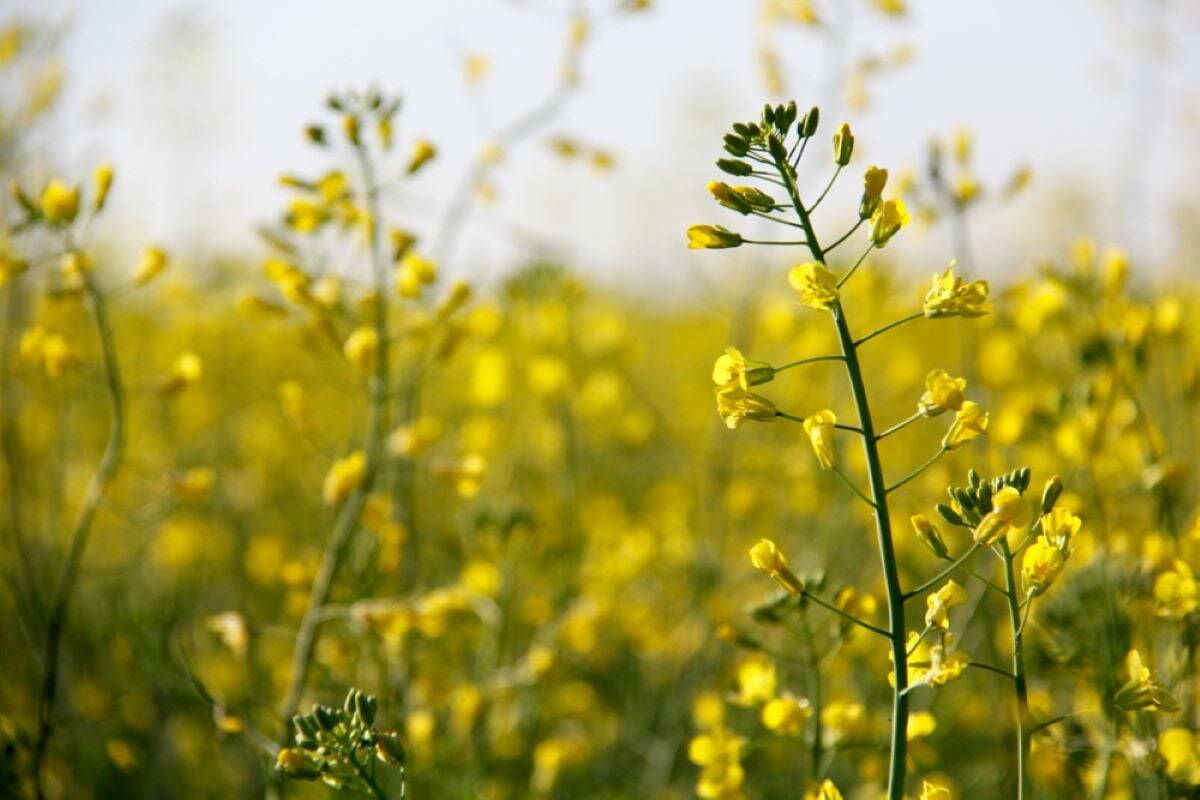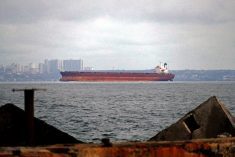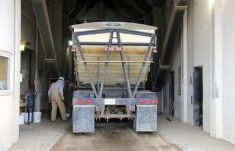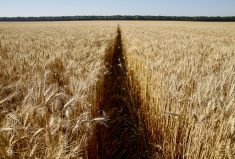CNS Canada — Canadian grain exports are moving out of the country at a similar pace as they were a year ago, but there are still some challenges along the logistical chain.
“Right now we’re looking at the second largest supply of grain that we’ve ever had to move,” said Mark Hemmes, president of Quorum Corporation, which compiles weekly performance updates on Canada’s grain handling sector.
He described grain movement to date as “not a perfect year,” but also “not a crisis,” adding “it’s safe to say that it could be better.”
Read Also

ICE weekly: China, soy complex lift canola prices
China’s upcoming lifting of tariffs and rising soyoil prices lifted Canadian canola values for the week ended Feb. 4, 2026.
Of the two major railways moving grain out of the Prairies, Canadian National Railway (CN) is facing some challenges while Canadian Pacific Railway (CP) is seeing good movement, according to Hemmes.
It was the exact opposite situation a year ago, he said, with CN running smoothly and CP experiencing difficulties.
“When both railways get behind, then we really start to worry,” said Hemmes.
CN’s problems were tied to getting caught short and increasing their movement of other commodities, such as coal and containers, he said.
However, the company went on a hiring spree in late 2017 and is leasing more locomotives, and Hemmes expected to see an improvement over the next few months which would “get stocks back down to a more manageable level.”
Looking at port activity, Hemmes said a downturn in traffic through the Port of Prince Rupert was hurting the overall movement, with only about 1,000 to 1,100 cars coming in per week, compared to the planned 1,400 to 1,500.
In Vancouver, there were 20 vessels waiting in the last report, which was down from 30 at Christmastime, but still above the 12- to 14-vessel lineup that would be more ideal. Hemmes said a ratio of two vessels per each terminal was what they liked to see, rather than the three-plus situation currently.
Going forward, weather will be a factor to watch as another cold snap or avalanches in the Rocky Mountains could cause delays.
“If we were going to get a bad cold snap at any time during the winter, having it at Christmas is probably the best you could hope for,” said Hemmes.
— Phil Franz-Warkentin writes for Commodity News Service Canada, a Winnipeg company specializing in grain and commodity market reporting.
















